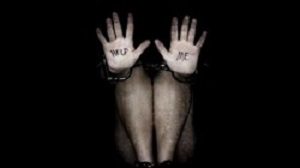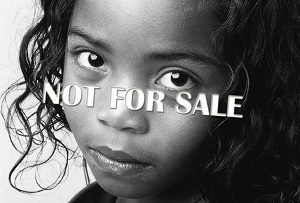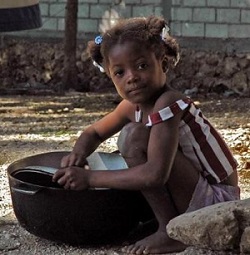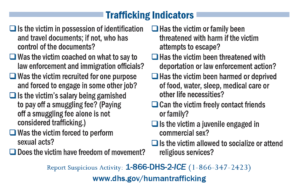#TurksandCaicos, April 17, 2018 – Providenciales – The Commission, with increasing global awareness has expressed concern over the potential of trafficking of persons and especially for the trafficking of women from the Dominican Republic and most recently Venezuela. Women are routinely provided with visas or work permits and are being brought into the country the disguise of legitimate working opportunities such as bar maids, nannies, waitresses, and dancers only to find themselves, unwillingly in most cases, plying sexual favours, engaging in prostitution or being victims of other forms of forced labour.
It is an established fast that human traffickers prey on people who are poor, isolated and weak. Issues such as disempowerment, social exclusion and economic vulnerability are the result of policies and practices that marginalize entire groups of people and make them particularly vulnerable to being trafficked. Natural disasters, conflict and political turmoil weaken already tenuous social protection measures. Individuals are vulnerable to being trafficked not only because of conditions in their countries but also by the allure of opportunity, the relentless demand for inexpensive goods and services and the expectation of reliable income drive people into potentially dangerous situations where they are at risk of being exploited.

The annual trafficking report by the US State Department remarked that the “Turks and Caicos Islands are a destination country for men, women, and children subjected to sex trafficking and forced labour. According to local experts, the large population of migrants from Haiti, the Dominican Republic, and Jamaica are vulnerable to sex trafficking and forced labour, with stateless children and adolescents especially at risk.” In an effort to combat trafficking the Turks and Caicos Islands Government has pushed the Trafficking in Persons Prevention Bill through the House of Assembly, the ordinance acquired assent on the 30th of January 2016 and came into force on the 12th of February 2016. This ordinance provides for sentences of up to 10 years for individuals involved in the traffic of persons and can act as a significant disincentive to those who are involved in this abhorrent trade.
 Sex Trafficking
Sex Trafficking
When women and girl children are coerced, forced, or deceived into prostitution, that person is considered a victim of trafficking. All persons involved in recruitment, transporting, harbouring, receiving or obtaining for that purpose are committing a crime under the Trafficking in Persons Prevention Ordinance 2016. Sexual trafficking can also occur with debt bondage as women and girls are forced into prostitution to pay of an illegal debt incurred through their transportation from one country to another. Upon to the host country they are told that this debt must be paid before they are freed and in most cases their identity documents are held by the traffickers.
Sexual trafficking is more than a crime or migration issue, it is a fundamental human rights issue, and, in many respects, it is a manifestation of persistent gender inequality and a symptom of the subordinate status of women globally. Around the world most trafficked people are women and children, data provided by the United Nations Office on Drugs and Crime suggested that globally 70% of trafficked people were female (49% women and 21% girls). Surprisingly the same report identified that many of the traffickers were themselves women and that in some parts of the world women trafficking women was held to be the norm.
 Trafficking has a harrowing effect on the mental, emotional and physical wellbeing of the women and girls ensnared in its web. Beyond the physical abuse, trafficked women suffer extreme emotional stress, including shame, grief, fear, distrust and suicidal thoughts. Victims often experience post-traumatic stress disorder, and with that, acute anxiety, depression and insomnia. Many victims turn to drugs and alcohol to numb the pain.
Trafficking has a harrowing effect on the mental, emotional and physical wellbeing of the women and girls ensnared in its web. Beyond the physical abuse, trafficked women suffer extreme emotional stress, including shame, grief, fear, distrust and suicidal thoughts. Victims often experience post-traumatic stress disorder, and with that, acute anxiety, depression and insomnia. Many victims turn to drugs and alcohol to numb the pain.
Sex trafficking also promotes societal breakdown by removing women and girls from their families and communities. Trafficking fuels organized crime groups that usually participate in many other illegal activities, including drug and weapons trafficking and money laundering. It negatively impacts local and national labour markets, due to the loss of human resources and burdens public health systems. It erodes government authority, encourages widespread corruption, and threatens the security of vulnerable populations.
 Victims of trafficking for forced labour lose their freedom, becoming modern-day slaves. They usually experience permanent physical and psychological harm, isolation from families and communities, reduced opportunities for personal development, and restricted movement. Victims are often wary of law enforcement and psychologically dependent on their traffickers. Child victims are denied educational access, which reinforces the cycle of poverty and illiteracy.
Victims of trafficking for forced labour lose their freedom, becoming modern-day slaves. They usually experience permanent physical and psychological harm, isolation from families and communities, reduced opportunities for personal development, and restricted movement. Victims are often wary of law enforcement and psychologically dependent on their traffickers. Child victims are denied educational access, which reinforces the cycle of poverty and illiteracy.
Human trafficking is modern day slavery and it is alive and well in the Turks and Caicos Islands. Recently a multi-agency task force has conducted raids across Providenciales and the allegations of many women who have been kept isolated and sexually exploited throughout the island have been rescued. It is to be hoped that the authorities, Police and Immigration, will be carrying out intensive investigations into those responsible for these alleged offences
and that they will eventually be brought to justice.
Everyone has the potential to identify a trafficked person. While victims may sometimes be kept behind locked doors in homes or brothels, they are often hidden right in front of us at, for example, construction sites, restaurants, elder care centres, nail salons, agricultural fields, and hotels. Traffickers’ use of coercion – such as threats of deportation and harm to the victim or their family members – is so powerful that even if you reach out to victims, they may be too fearful to accept your help. Knowing indicators of human trafficking will help you act on your gut feeling that something is wrong and report it to the RTCIPF Sexual Offences Unit or the Offices of the Human Rights Commission.
Human Trafficking Indicators

While not an exhaustive list, these are some key red flags that could alert you to a potential trafficking situation that should be reported:
It is the responsibility of every one of us to assist the authorities in stamping out this sinister crime.
Release: Human Rights Commission

